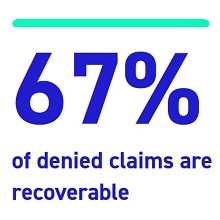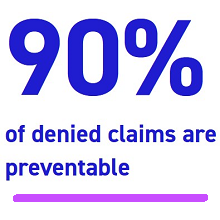PSCA: DOL Body Finds Health Insurers Improperly Deny Claims, Makes 12 RecommendationsBy: Paul Mulholland | March 5, 2025The report made 12 policy recommendations to improve the process and broadly found that health insurers have dubious processes for denying claims and make the appeal process unnecessarily difficult.The ERISA Advisory Council (EAC) published their report on health insurance claims, denials, and denial appeals. The report made 12 policy recommendations to improve the process and broadly found that health insurers have dubious processes for denying claims and make the appeal process unnecessarily difficult. The EAC is a 15-member advisory body on rotating terms that represent various industries and interests related to ERISA. Members are appointed by the Secretary of Labor and serve on a volunteer basis. Further meetings of the EAC have been paused. The report elaborates on the same 12 preliminary recommendations the EAC proposed in December, which the then head of EBSA, Lisa Gomez, described as “tragically timely.” There is a second report on QDIAs, with a focus on retirement income, that is expected in the coming days. The 12 recommendations made by the EAC are as follows; the Department of Labor (DOL should:
Why Are These Reforms Needed?Joe Feldman, the president of Cover My Mental Health, highlighted recommendations seven, nine, and 12. He described them as “so commonsensical, that in a way it’s bizarre that they require mention.” Point seven, that insurers abide by accepted standards of care, is important because some insurers will keep their own proprietary standards, Feldman explains. If a provider must cater to the standards of multiple insurers, which may differ from their training “it’s not in the patient’s best interest. It’s certainly not conducive to the clinician being effective at their jobs.” Feldman says, speaking to point nine, that clinicians often must get prior authorization from a health professional that “might not be trained in the right specialty,” such as a dermatologist making a determination for a psychiatrist. Point 12, which recommends the DOL force providers to abide by their own prior authorization (the preliminary report recommended a rule of estoppel), is perhaps the most important, Feldman argues. Patients with health care needs and a prior approval should not get a notice that says “just kidding” and then be left on the hook for the cost. The report made several general observations about the state of health insurance. For instance, the EAC found that “some appeal requirements for health benefit claims may be too complex or are not adequately understood by plan participants,” and that appeal rates are low “due to a lack of understanding by participants on how to challenge an unjustified denial, along with the complexity of the appeal process.” Experts who testified to the EAC last year noted that many participants don’t understand their appeal rights, in large part because “insurers often bury coverage criteria, denial rationales, and appeal rights in documents.” Representatives of the American Medical Association (AMA) explained to the EAC that claim denials and pre-authorization requirements cost providers money, and those costs are passed on to patients. Additionally, “individuals making decisions regarding medical necessity have not examined the patient and are too often not physicians trained in the specialty that handles the treatment at issue.” The report was briefly available here but has been taken down. This article was originally published on PSCA. |




